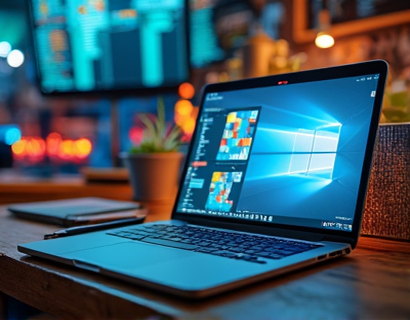Streamline Event Success: Mastering Planning and Execution with Advanced Analytics and Real-Time Tools
In the realm of event planning, the difference between a mediocre gathering and a spectacular success often hinges on meticulous preparation and the ability to adapt in real-time. The modern event organizer faces a myriad of challenges, from managing registrations and tracking attendee engagement to ensuring seamless logistics and delivering memorable experiences. Advanced analytics and real-time tools have emerged as pivotal components in overcoming these challenges, offering event planners the insights and control needed to elevate their events to new heights.
Understanding the Importance of Advanced Planning Tools
Effective event planning begins long before the first guest arrives. Advanced planning tools provide a comprehensive platform for organizing every aspect of an event, from initial concept to post-event analysis. These tools offer features such as customizable registration forms, automated reminders, and detailed analytics that help organizers anticipate and address potential issues before they arise. By leveraging these technologies, event planners can focus more on creating engaging experiences and less on administrative tasks.
Registration Management: Simplifying the First Touchpoint
The registration process is often the first interaction attendees have with an event, setting the tone for their overall experience. Advanced registration management tools streamline this process by allowing organizers to create visually appealing registration pages, manage multiple registration channels, and process payments efficiently. These tools can also integrate with CRM systems to capture valuable attendee data, which can be used for targeted marketing and personalized communications.
Moreover, real-time updates and notifications ensure that attendees are always informed about registration status, changes, and important event details. This transparency builds trust and enhances the attendee's sense of involvement from the very beginning.
Attendee Tracking: Enhancing Engagement and Personalization
Once attendees are registered, the next critical step is to track their engagement throughout the event. Advanced tracking tools enable organizers to monitor attendance patterns, session participation, and interaction with exhibitors or sponsors. This data is invaluable for understanding what content resonates most with the audience and for making real-time adjustments to maximize engagement.
Personalization is another key benefit of attendee tracking. By analyzing real-time data, event planners can send targeted messages, recommend sessions based on interests, and even offer personalized networking opportunities. This level of personalization not only enhances the attendee experience but also increases the likelihood of attendees returning to future events.
Real-Time Analytics: Making Data-Driven Decisions
Real-time analytics is the backbone of modern event management, providing organizers with immediate insights into various aspects of the event. These analytics tools can track everything from attendee flow and session popularity to sponsor engagement and social media mentions. The ability to access this data in real-time allows event planners to make informed decisions on the fly, adjusting schedules, content, and resources as needed to optimize the event experience.
For instance, if a particular session is underattended, organizers can quickly redistribute resources or promote it through targeted communications. Conversely, popular sessions can be extended or duplicated to meet demand. Real-time analytics also help in identifying potential issues before they escalate, such as overcrowding in certain areas or technical difficulties during presentations.
Seamless Logistics: Ensuring Smooth Operations
Beyond registration and engagement, advanced tools play a crucial role in managing the logistical aspects of an event. From venue management to catering and transportation, every detail must be meticulously planned and executed. Event management software integrates these various components, providing a centralized platform for oversight and coordination.
For example, real-time inventory tracking ensures that supplies are always available when needed, reducing the risk of shortages or overstocking. Similarly, integrated communication tools allow event staff to stay connected and coordinate efforts efficiently, ensuring that any issues are addressed promptly.
Enhancing Attendee Experience Through Technology
The attendee experience is at the heart of any successful event, and technology plays a pivotal role in enhancing it. Mobile event apps, powered by advanced analytics, offer attendees a personalized and interactive way to navigate the event. These apps can include features such as customizable schedules, real-time maps, push notifications, and even virtual badges for networking.
Augmented reality (AR) and virtual reality (VR) experiences can also be integrated to create immersive and memorable moments. For instance, AR can provide attendees with interactive information about exhibits or speakers, while VR can offer virtual tours or simulations that complement physical activities.
Post-Event Analysis: Learning and Improving
The work of an event planner does not end with the closing remarks. Post-event analysis is crucial for evaluating the success of the event and identifying areas for improvement. Advanced analytics tools provide comprehensive reports that cover various metrics, from attendance numbers and engagement levels to financial performance and attendee feedback.
These insights help organizers understand what worked well and what didn’t, informing future planning decisions. Additionally, sentiment analysis of social media mentions and attendee surveys can provide qualitative feedback, offering a more nuanced understanding of the event's impact.
Conclusion: Transforming Events with Advanced Tools
In an era where attendee expectations are higher than ever, event planners must leverage advanced analytics and real-time tools to deliver exceptional experiences. These technologies not only streamline planning and execution but also provide the insights needed to make data-driven decisions, ensuring that every event is a resounding success. By embracing these tools, organizers can transform their events into memorable occasions that leave a lasting impression on all attendees.











































